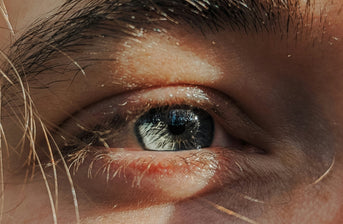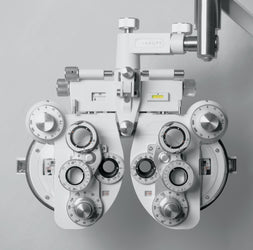When it comes to vision correction, finding the right contact lenses can make all the difference. If you or your child have astigmatism, you may experience blurry or distorted vision, but the good news is, the right contact lenses can help you see clearly and comfortably.
What is Astigmatism?
Astigmatism is a common refractive error where the cornea or lens of the eye has an irregular curvature. Instead of being perfectly spherical, the eye is shaped more like a rugby ball. This causes light entering the eye to focus unevenly on the retina, resulting in blurred or distorted vision at all distances.
Astigmatism often occurs alongside short-sightedness (myopia) or long-sightedness (hyperopia) and can affect both children and adults.

Can You Wear Contact Lenses If You Have Astigmatism?
Yes! Many people with astigmatism successfully wear contact lenses every day. The key is choosing lenses specifically designed to correct the uneven shape of the eye - and that’s where your optometrist can help.
Types of Contact Lenses for Astigmatism
There are several types of contact lenses that can correct astigmatism. Your optometrist will help determine which is best based on your prescription, eye health, and lifestyle:
1. Soft Toric Lenses
These are the most common contact lenses for people with astigmatism. They're made from soft, flexible material and are specially shaped to give you clear vision. They also stay in the right position on your eye, so your vision stays steady throughout the day. Soft toric lenses come in daily, two-weekly and monthly options, depending on what suits your routine.
2. Hard (RGP) Rigid Gas Permeable Lenses
These lenses are firmer than soft lenses and hold their shape on your eye. This means they can give very sharp vision - especially if you have a stronger level of astigmatism. They're also longer lasting and can work well for people who don't mind a bit of an adjustment period. RGP lenses can take some getting used to, but once you're comfortable, they can be a great option.
3. For More Complex Cases
In some situations - for example, if your eye shape is very unusual or you have a condition like keratoconus - a specialist might recommend a different type of lens. These are fitted in more complex cases and usually require extra care and advise.

How to Find the Right Lenses for You
Choosing the right lenses is about more than just your prescription. Here are some things your optician will consider:
-
Comfort – Some people prefer soft lenses; others are happy with hard lenses once they’ve adjusted.
-
Your lifestyle – Do you want lenses you can wear every day? Do you play sports or work long hours?
-
Your eye health – Everyone’s eyes are different, and your optician will check what suits yours best.
What's the Next Step?
If you’re finding your vision blurry or uncomfortable, it might be time to try contact lenses made for astigmatism. The first step is to book an appointment with your optician. They’ll check your eyes, talk through your options, and help you find lenses that fit comfortably and give you clear vision.
At Eye Emporium, we’re here to give you personal advice, expert care, and support at every stage - from your eye test to your first pair of lenses and beyond.
Ready to see more clearly?








